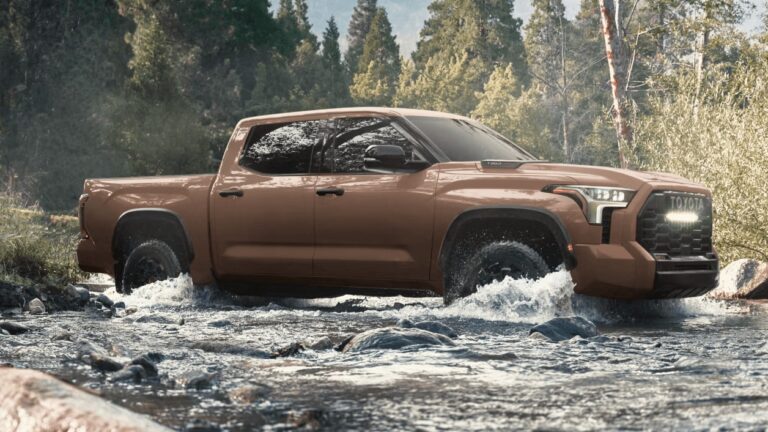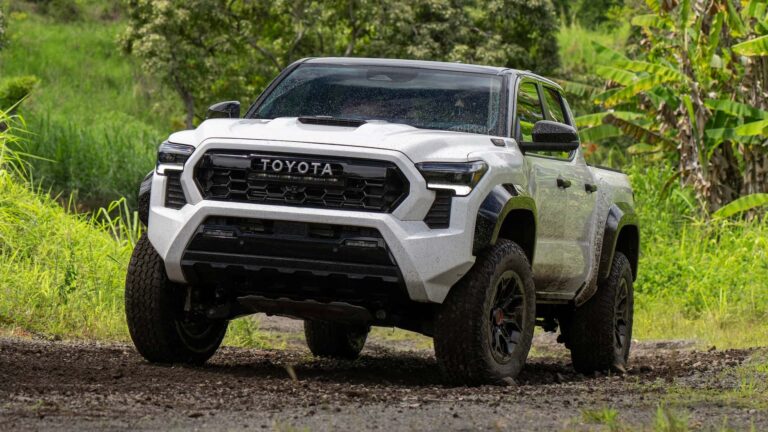Commercial Trucks For Sale California: Your Comprehensive Guide to Navigating the Golden State’s Truck Market
Commercial Trucks For Sale California: Your Comprehensive Guide to Navigating the Golden State’s Truck Market cars.truckstrend.com
California, with its colossal economy, sprawling logistics networks, bustling ports, and diverse industries ranging from agriculture to technology, represents a vibrant and demanding market for commercial trucks. For businesses, entrepreneurs, and independent operators, acquiring the right commercial truck in California isn’t just a purchase; it’s a strategic investment crucial for operational efficiency, economic growth, and compliance within one of the world’s most regulated environments. This comprehensive guide will navigate the intricacies of finding, evaluating, and purchasing commercial trucks for sale in California, ensuring you make an informed decision that drives your success.
Why California is a Prime Market for Commercial Trucks
Commercial Trucks For Sale California: Your Comprehensive Guide to Navigating the Golden State’s Truck Market
The sheer scale of economic activity in California fuels an insatiable demand for commercial vehicles. From the relentless flow of goods through the ports of Los Angeles and Long Beach, which handle a significant portion of U.S. imports and exports, to the vast agricultural output of the Central Valley, and the construction booms in urban centers, trucks are the lifeblood connecting every sector. This creates a dynamic marketplace for new and used commercial vehicles of all types.
However, California also stands unique due to its pioneering and stringent environmental regulations, primarily enforced by the California Air Resources Board (CARB). These regulations, aimed at reducing air pollution, significantly influence the types of trucks that can legally operate within the state. Understanding and adhering to CARB compliance is not merely a recommendation but a legal imperative for any commercial truck owner in California.
Types of Commercial Trucks Available in California
The Golden State’s diverse economic landscape necessitates an equally diverse fleet of commercial trucks. Understanding the categories is the first step in identifying your specific needs:
-
Heavy-Duty Trucks (Class 8): These are the workhorses of long-haul transportation. Commonly known as semi-trucks, tractor-trailers, or 18-wheelers, they are designed to pull large trailers carrying vast amounts of freight across state lines and continents. Examples include Freightliner Cascadias, Kenworth T680s, Peterbilt 579s, and Volvo VNLs. These trucks are essential for intermodal transport, large-scale distribution, and cross-country logistics.
-
Medium-Duty Trucks (Class 4-7): Bridging the gap between light-duty and heavy-duty, these trucks are versatile for a range of applications, including local deliveries, construction, and specialized services.
- Box Trucks/Straight Trucks: Ideal for moving furniture, parcel delivery, and general cargo. Often seen in various lengths.
- Flatbed Trucks: Used for transporting oversized or oddly shaped cargo that doesn’t require enclosure, such as construction materials, machinery, or landscaping supplies.
- Dump Trucks: Indispensable in construction, mining, and landscaping for hauling sand, gravel, dirt, and demolition waste.
- Utility/Service Trucks: Equipped with compartments, cranes, or specialized tools for technicians, electricians, and plumbers.
-
Light-Duty Commercial Trucks (Class 1-3): While often resembling consumer vehicles, these are designed for commercial use, offering agility for urban environments and smaller loads.
- Commercial Vans: Panel vans, cargo vans, and sprinter vans are popular for last-mile delivery, catering, and mobile service businesses.
- Commercial Pickups: Heavy-duty versions of popular pickup trucks (e.g., Ford F-250/350/450, Ram 2500/3500, Chevy Silverado 2500/3500) are used by contractors, landscapers, and various trades for hauling tools and equipment.
-
Specialized Trucks: Beyond these general categories, California’s market includes a wide array of highly specialized vehicles:
- Refrigerated Trucks (Reefers): Essential for transporting perishable goods like food, pharmaceuticals, and flowers, maintaining precise temperature control.
- Garbage Trucks: Vital for municipal and private waste management.
- Concrete Mixers: Crucial for construction sites.
- Tow Trucks: For vehicle recovery and roadside assistance.
- Tanker Trucks: For liquids or gases, including fuel, chemicals, and water.

Both new and used options are abundant, each offering distinct advantages. New trucks come with warranties, the latest technology, and guaranteed CARB compliance, but at a higher price point. Used trucks offer cost savings and quicker depreciation, but require more diligent inspection and verification of their operational history and regulatory compliance.
Key Considerations When Buying a Commercial Truck in California
Purchasing a commercial truck is a significant financial and operational decision. Careful consideration of these factors will lead to a successful acquisition:
-
Budget and Financing:
- Purchase Price: This is just the starting point. Consider down payments, interest rates, and loan terms.
- Operating Costs: Factor in fuel, maintenance, insurance, tires, and potential repairs.
- Financing Options: Explore commercial truck loans, leasing agreements (full-service, finance lease), and lines of credit. Each has tax implications and different benefits for cash flow.
-
Vehicle Specifications and Intended Use:
- Gross Vehicle Weight Rating (GVWR) & Gross Combined Weight Rating (GCWR): Understand the maximum operating weight for the truck alone (GVWR) and the truck plus trailer (GCWR) to ensure it meets your hauling needs.
- Payload & Towing Capacity: Crucial for matching the truck to the weight and volume of your typical cargo.
- Engine Type & Horsepower: Diesel engines are standard for heavy-duty applications due to their torque and fuel efficiency for heavy loads. Horsepower determines the truck’s ability to maintain speed on inclines.
- Transmission: Manual transmissions offer more control and fuel efficiency for experienced drivers, while automatic transmissions are easier to operate, reducing driver fatigue.
- Axle Configurations: Tandem axles provide greater stability and weight distribution for heavy loads.
- Fuel Efficiency: A significant ongoing cost. Research average MPG for the specific model and engine.
-
California Emissions Regulations (CARB Compliance): This is perhaps the most critical factor unique to California.
- Truck and Bus Regulation: CARB’s stringent rules mandate that most diesel trucks operating in California meet specific emissions standards. Older, non-compliant trucks may not be registered or operated in the state.
- Diesel Particulate Filters (DPF) & Diesel Exhaust Fluid (DEF): Modern diesel trucks (generally 2010 model year and newer) incorporate these systems to reduce emissions. Ensure any truck you consider, especially used ones, has a functioning, compliant system.
- TRUCRS Reporting: Commercial vehicles must be reported to CARB’s Truck and Bus Regulation Compliance Reporting System (TRUCRS). Non-compliant vehicles face severe penalties, including fines and inability to register.
- Verification: Always verify a truck’s CARB compliance status by checking its VIN through the CARB public database or with the seller’s documentation.
-
Condition and History (for Used Trucks):
- Professional Inspection: Never buy a used commercial truck without a thorough pre-purchase inspection by a qualified, independent mechanic specializing in commercial vehicles.
- Maintenance Records: Request detailed service history to assess how well the truck was maintained.
- VIN Check: Use a service like Carfax or a specialized truck history report provider to check for accidents, liens, flood damage, and mileage discrepancies.
- Mileage and Hours: High mileage or engine hours can indicate wear and tear, but consistent maintenance can mitigate risks.
-
Dealer Reputation and Support:
- After-Sales Service: Does the dealer offer maintenance, parts, and repair services?
- Warranty: Understand any warranties offered, especially for used trucks.
- Customer Reviews: Check online reviews and testimonials.
Where to Find Commercial Trucks For Sale in California
California offers numerous avenues for sourcing commercial trucks:
- Authorized Dealerships: For new trucks, these offer manufacturer warranties, financing options, and certified service centers. Many also sell certified pre-owned trucks.
- Independent Used Truck Dealerships: A vast market for used trucks of all makes and models. Prices can be more competitive, but diligence in inspection is paramount.
- Online Marketplaces:
- Specialized Truck Sites: TruckPaper.com, CommercialTruckTrader.com, and MyLittleSalesman.com are dedicated platforms with extensive listings.
- General Marketplaces: eBay Motors, Craigslist (local listings), and Facebook Marketplace can yield private sellers or smaller dealerships.
- Auctions: Public auctions (government surplus, fleet liquidations, repossessions) can offer good deals but require quick decision-making and often "as-is" purchases.
- Direct from Businesses/Private Sellers: Companies upgrading their fleets or individual owners selling their vehicles can sometimes offer competitive prices.
The Buying Process: A Step-by-Step Guide
- Define Your Needs and Budget: Clearly outline the type of truck, capacity, and features you need, then establish a realistic budget, including purchase price and ongoing operational costs.
- Research and Shortlist: Browse online listings, visit dealerships, and compare models, prices, and features.
- Initial Inspection & Query: For promising trucks, contact the seller. Ask detailed questions about the truck’s history, maintenance, and especially its CARB compliance status.
- Professional Pre-Purchase Inspection (PPI): This is non-negotiable for used trucks. Hire an independent mechanic specializing in commercial vehicles to thoroughly inspect the truck.
- Test Drive: Drive the truck under conditions similar to its intended use. Pay attention to engine performance, transmission shifting, brakes, steering, and any unusual noises.
- Verify CARB Compliance: Before finalizing any deal, use the VIN to check the truck’s compliance status on the CARB website. Request all relevant documentation from the seller.
- Negotiate Price: Based on your research, the inspection report, and market value, negotiate the best possible price.
- Secure Financing: If not paying cash, finalize your loan or lease agreement.
- Complete Paperwork: Ensure you receive the title, bill of sale, and any other necessary documentation for registration.
- Insurance: Obtain commercial truck insurance before taking possession.
- Registration: Register the truck with the California Department of Motor Vehicles (DMV) and ensure all CARB requirements are met.
Navigating California’s Strict Regulations
California’s commitment to clean air means its commercial vehicle regulations are among the strictest globally. The Truck and Bus Regulation is paramount, requiring diesel trucks and buses with a GVWR greater than 14,000 pounds to meet specific engine model year standards or be equipped with a CARB-verified diesel particulate filter. Trucks 2010 model year and newer are generally compliant. Older trucks may require retrofitting or replacement. Non-compliance can lead to hefty fines, registration blocks, and even impoundment. Always prioritize CARB compliance verification to avoid costly penalties and operational disruptions.
Tips for a Successful Purchase
- Do Your Homework: Thorough research on truck types, market prices, and regulations will empower you.
- Don’t Rush: Take your time to find the right truck. A hasty decision can lead to costly mistakes.
- Get Everything in Writing: Ensure all agreements, warranties, and disclosures are documented.
- Factor in All Costs: Beyond the purchase price, consider maintenance, insurance, fuel, and regulatory compliance expenses.
- Consider a Warranty: For used trucks, a good warranty can provide peace of mind against unexpected repairs.
- Leverage Professional Advice: Consult with a commercial truck mechanic, a commercial insurance agent, and potentially a financial advisor specializing in fleet management.
Commercial Trucks For Sale California: Price Table (Estimated Ranges)
Please note that these are estimated price ranges and can vary significantly based on the truck’s specific condition, mileage, features, market demand, and seller. Prices are generally higher in California due to demand and CARB compliance requirements.
| Truck Type | Typical Price Range (New) | Typical Price Range (Used) | Key Features/Notes |
|---|---|---|---|
| Class 8 Heavy-Duty (Semi-Truck) | $140,000 – $250,000+ (Tractor only) | $30,000 – $120,000+ (CARB Compliant, 2010+ model year) | Long-haul, high GVWR/GCWR, diesel engine, sleeper cabs common. Price depends heavily on engine, transmission, mileage, and amenities. |
| Class 6-7 Medium-Duty (Box Truck) | $70,000 – $120,000+ | $25,000 – $70,000+ (CARB Compliant, 2010+ model year) | Local/regional delivery, various box sizes. Price varies by box length, lift gate, refrigeration unit (if applicable). |
| Class 4-5 Medium-Duty (Flatbed) | $60,000 – $100,000+ | $20,000 – $60,000+ (CARB Compliant, 2010+ model year) | Transporting oversized cargo, construction materials. Price depends on payload capacity, bed length, and any specialized equipment (e.g., crane, ramps). |
| Dump Truck | $100,000 – $200,000+ | $40,000 – $150,000+ (CARB Compliant, 2010+ model year) | Construction, hauling aggregate. Price varies by capacity, axle configuration, and body material. |
| Refrigerated Truck (Reefer) | $90,000 – $180,000+ (Medium-Duty) | $35,000 – $100,000+ (CARB Compliant, 2010+ model year, reefer unit inspected) | Temperature-controlled transport. Price heavily influenced by insulation quality, refrigeration unit brand/age, and box size. |
| Commercial Van (Cargo/Sprinter) | $40,000 – $75,000+ | $15,000 – $45,000+ | Last-mile delivery, mobile services. Price depends on size, wheelbase, roof height, and interior upfits. Often gasoline or newer diesel (CARB compliant). |
| Heavy-Duty Commercial Pickup | $50,000 – $85,000+ (Base models, up to $100k+ for loaded) | $20,000 – $55,000+ | Contractors, landscaping, towing smaller trailers. Price varies by trim level, engine (gas vs. diesel), 4×4, and bed length. Generally easier to find CARB compliant. |
Note: For used trucks, "CARB Compliant, 2010+ model year" indicates the general sweet spot for compliance with California’s current Truck and Bus Regulation. Older trucks may be cheaper but come with significant compliance risks or require costly retrofits.
Frequently Asked Questions (FAQ)
Q1: How do I check a commercial truck’s CARB compliance in California?
A1: You can check a truck’s compliance status by visiting the California Air Resources Board (CARB) website and using their Public VIN Look-up tool. You’ll need the vehicle’s VIN to verify its status under the Truck and Bus Regulation.
Q2: What is the difference between GVWR and GCWR?
A2: GVWR (Gross Vehicle Weight Rating) is the maximum operating weight of the truck itself, including its chassis, engine, fuel, passengers, and cargo. GCWR (Gross Combined Weight Rating) is the maximum permissible weight of the truck plus its trailer and cargo. Understanding these ratings is crucial for legal and safe operation.
Q3: Should I buy a new or used commercial truck in California?
A3: This depends on your budget, immediate needs, and risk tolerance. New trucks offer warranties, the latest technology, and guaranteed CARB compliance but come at a higher cost. Used trucks are more affordable and depreciate slower, but require thorough inspection, verification of maintenance history, and crucial CARB compliance checks to avoid future issues.
Q4: What financing options are available for commercial trucks?
A4: Common financing options include commercial truck loans from banks or credit unions, dealership financing, and various leasing options (e.g., full-service leases, finance leases). Each has different benefits regarding upfront costs, monthly payments, and tax implications.
Q5: What documents do I need to register a commercial truck in California?
A5: You’ll typically need the vehicle’s title, a bill of sale, proof of insurance, a valid California driver’s license (or commercial driver’s license, CDL, if applicable), and proof of CARB compliance. The DMV may also require a smog check or other inspections depending on the vehicle type and age.
Q6: Can I buy an out-of-state commercial truck and bring it into California?
A6: Yes, but it must comply with California’s emissions regulations. Many trucks from other states, especially older models, may not meet CARB standards. It’s critical to verify CARB compliance before purchase, as non-compliant vehicles cannot be registered or legally operated in California, regardless of where they were purchased.
Conclusion
The market for commercial trucks for sale in California is robust and diverse, offering opportunities for every business and operational need. However, navigating this market requires diligence, especially regarding California’s unique and stringent environmental regulations. By thoroughly researching your options, understanding the specific requirements for your intended use, securing professional inspections, and prioritizing CARB compliance, you can make a strategic investment that supports your business’s efficiency, growth, and long-term success in the Golden State. Choose wisely, and your commercial truck will be a powerful asset driving you forward.




